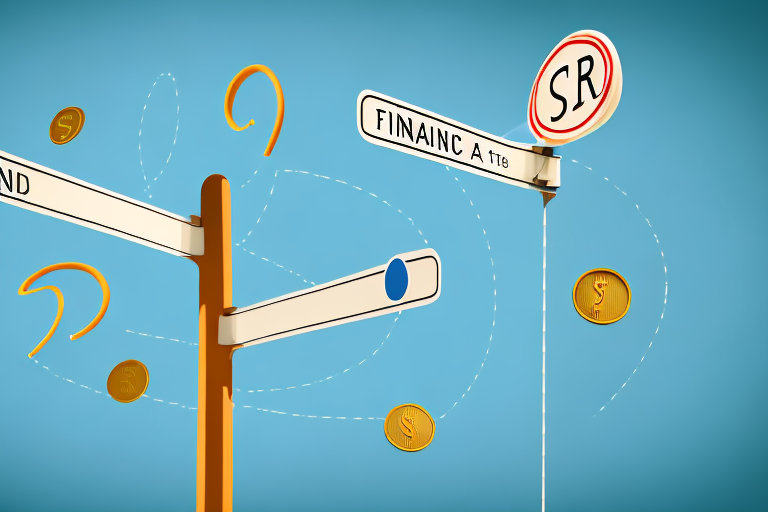Facing financial distress can be daunting, especially when you don’t know where to turn. That’s where insolvency lawyers come in – they can guide you through the ins and outs of the insolvency process, advise you on your legal options, and represent you in court proceedings to help you achieve the best possible outcome.
In this article, we’ll explore how best insolvency lawyers can help individuals and businesses in financial distress, and shed light on different types of insolvency proceedings.
Understanding Insolvency and Financial Distress
What is Insolvency?
Insolvency is a state of financial distress where an individual or a business is unable to pay their debts as they come due. This can be a result of various factors such as loss of income, unexpected expenses, or mismanagement of finances. When a person or a business is in a state of insolvency, they may not be able to meet their financial obligations, which can lead to a range of negative consequences.
For individuals, insolvency can result in a damaged credit score, difficulty in obtaining loans, and even personal bankruptcy. For businesses, insolvency can result in bankruptcy, insolvency, or closure, which can lead to job losses and financial hardship for employees. It is important to note that insolvency is not the same as bankruptcy, but it is often a precursor to it.
Causes of Financial Distress
Financial distress can be caused by a multitude of factors, including personal problems, market changes, economic downturns, and global pandemics. For businesses, some of the causes of financial distress include low profitability, poor cash flow, and excessive debt.
Personal problems such as divorce, illness, or death in the family can lead to financial distress for individuals. Market changes such as a decline in demand for a product or service, or a rise in competition can also cause financial distress for businesses. Economic downturns such as a recession can lead to financial distress for both individuals and businesses.
Global pandemics such as COVID-19 can also cause financial distress for individuals and businesses. The pandemic has resulted in widespread job losses, reduced income, and business closures, leading to financial hardship for many people around the world.

The Impact of Financial Distress on Businesses and Individuals
Financial distress can be devastating for both businesses and individuals. For businesses, financial distress can lead to bankruptcy, insolvency, or even closure, resulting in job losses and financial hardship for employees. It can also lead to damage to the reputation of the business, making it difficult to attract customers and investors in the future.
For individuals, financial distress can lead to personal bankruptcy, foreclosure, and a host of other financial problems that can be difficult to recover from. It can also lead to stress, anxiety, and other mental health issues, which can have a negative impact on overall well-being.
It is important to take steps to avoid financial distress, such as creating a budget, managing debt, and building an emergency fund. Seeking professional advice from a financial advisor or credit counselor can also be helpful in managing financial difficulties and avoiding insolvency.
The Role of Insolvency Lawyers
In today’s world, businesses and individuals often face financial difficulties and may require assistance in navigating through the complex legal issues and regulations surrounding insolvency and bankruptcy. This is where insolvency lawyers come in.
Legal Expertise in Insolvency Matters
Insolvency lawyers are legal experts who specialize in the field of financial distress and insolvency. They have a deep understanding of the legal framework surrounding insolvency matters and can provide legal guidance and support to clients.
Whether it’s a company facing financial difficulties or an individual struggling with debt, insolvency lawyers can help clients understand their legal rights and obligations. They can also provide advice on the best course of action to take to resolve their financial issues.
Advising on Debt Restructuring and Recovery
One of the key roles of an insolvency lawyer is to advise clients on debt restructuring and recovery options. They can help negotiate with creditors and lenders to restructure debt agreements and develop repayment plans that are manageable for clients.
Insolvency lawyers can also assist clients in understanding the various debt relief options available to them, such as bankruptcy, debt consolidation, or debt settlement. They can explain the pros and cons of each option and help clients make informed decisions about their financial future.
Representing Clients in Court Proceedings
If a dispute arises, insolvency lawyers can represent clients in court proceedings. They can advocate for their clients’ interests and protect their rights throughout the legal process.
Insolvency lawyers can also assist clients in filing for bankruptcy or other debt relief options. They can help clients navigate the complex legal requirements and procedures involved in filing for bankruptcy and ensure that their clients’ interests are protected throughout the process.
Overall, the role of insolvency lawyers is crucial in helping individuals and businesses navigate through the complex legal issues surrounding financial distress and insolvency. With their legal expertise and experience, they can provide clients with the guidance and support they need to make informed decisions and achieve the best possible outcome for their financial situation.

Types of Insolvency Proceedings
Insolvency is a difficult and complex process for any business or individual to go through. It can be overwhelming and stressful, but understanding the different types of insolvency proceedings can help you make informed decisions about your financial situation.
Liquidation
Liquidation is a type of insolvency proceeding where a business’s assets are sold to pay off creditors. This may involve a court-appointed liquidator who takes control of the company’s assets, sells them off, and distributes the proceeds to creditors. Liquidation can be voluntary or involuntary, and it typically marks the end of a business’s operations.
During the liquidation process, the liquidator will assess the company’s assets and liabilities, sell off any assets that are not essential to the business, and use the proceeds to pay off creditors. If there are any funds left over after paying off all creditors, they will be distributed to the company’s shareholders.
Administration
Administration is a process that allows a business to restructure and recover while protection from creditors is put in place. During administration, the company will be run by a court-appointed administrator who will work to get the business back on track and pay off creditors. The goal of administration is to save the company from insolvency and avoid liquidation.
During the administration process, the administrator will work with the company’s directors to develop a plan to restructure the business and make it profitable again. This may involve reducing costs, selling off non-essential assets, and renegotiating contracts with suppliers and creditors. The administrator will also work with the company’s creditors to come up with a repayment plan that is fair and manageable for both parties.
Company Voluntary Arrangements (CVAs)
A CVA is a legally binding agreement between a business and its creditors that allows the business to restructure its debt payments while continuing to operate. The CVA proposal must be approved by the company’s creditors and must be overseen by a licensed insolvency practitioner.
Under a CVA, the company will make regular payments to its creditors over a period of time, typically three to five years. The payments will be based on what the company can afford, and any remaining debt at the end of the term will be written off. This allows the company to continue operating while repaying its debts and avoiding liquidation.
Individual Voluntary Arrangements (IVAs)
IVAs are similar to CVAs, except they are designed for individuals rather than businesses. IVAs are a formal agreement between an individual and their creditors to restructure their debt payments and avoid bankruptcy.
Under an IVA, the individual will make regular payments to their creditors over a period of time, typically five to six years. The payments will be based on what the individual can afford, and any remaining debt at the end of the term will be written off. This allows the individual to avoid bankruptcy while repaying their debts.
Bankruptcy
Bankruptcy is the most severe form of insolvency and should be considered as a last resort. It involves a court declaring an individual or business bankrupt and appointing a trustee to manage the sale of assets to pay off creditors.
During the bankruptcy process, the trustee will assess the individual or business’s assets and liabilities, sell off any assets that are not essential to the business or individual’s livelihood, and use the proceeds to pay off creditors. Bankruptcy can have serious consequences, including the loss of assets and a negative impact on credit ratings, so it should only be considered as a last resort.

How Insolvency Lawyers Can Help You
If you are struggling with debt and financial difficulties, it can be a challenging and stressful time. However, insolvency lawyers can provide you with expert guidance and support to help you navigate this difficult period. Here are some of the ways in which insolvency lawyers can help you:
Assessing Your Financial Situation
One of the first things insolvency lawyers will do is assess your financial situation. They will review your debts, assets, and income and help determine which insolvency proceedings may be applicable to your case. This assessment is crucial in determining the best course of action for your individual circumstances. Insolvency lawyers can provide you with an objective and informed perspective on your financial situation.
They can also help you understand the different options available to you, including bankruptcy, individual voluntary arrangements (IVAs), and debt relief orders (DROs). They can advise you on the advantages and disadvantages of each option and help you make an informed decision.
Exploring Alternatives to Insolvency
Insolvency lawyers can also help explore alternatives to insolvency, such as debt restructuring or repayment plans. They can negotiate with creditors on your behalf to develop a feasible plan that can help you avoid bankruptcy. This can involve negotiating reduced payments, freezing interest and charges, and extending repayment terms. By working with an insolvency lawyer, you may be able to avoid the negative consequences of bankruptcy, such as the loss of assets and damage to your credit score.
Navigating the Insolvency Process
The insolvency process can be complicated and confusing, but insolvency lawyers are there to help you navigate it. They can guide you through each step of the process, ensuring that you understand your rights and obligations. This can include providing you with information on the documents you need to complete, the deadlines you need to meet, and the meetings you need to attend.
Insolvency lawyers can also help you prepare for the insolvency hearing and represent you in court if necessary. They can ensure that your case is presented in the best possible light and that your interests are protected throughout the process.
Protecting Your Rights and Interests
Finally, insolvency lawyers can advocate for your rights and interests throughout the insolvency process. They can represent you in court proceedings, negotiate with creditors, and ensure that your interests are protected at all times. This can include challenging unfair creditor practices, such as harassment and intimidation, and ensuring that you are treated fairly and with respect.
In conclusion, if you are struggling with debt and financial difficulties, an insolvency lawyer can provide you with the expert guidance and support you need to navigate this difficult period. They can help you understand your options, develop a feasible plan, and protect your rights and interests throughout the insolvency process.
Conclusion
In conclusion, when facing financial distress and insolvency, it is essential to seek legal advice from an experienced insolvency lawyer. They can provide the legal guidance and support you need to navigate the insolvency process, and help you achieve the best possible outcome. So, if you or your business are experiencing financial distress, don’t hesitate to reach out to an insolvency lawyer for help.
